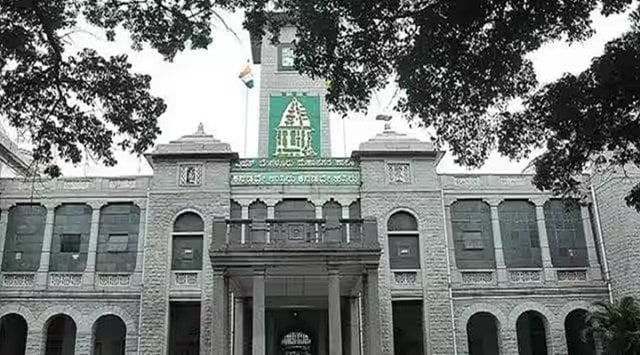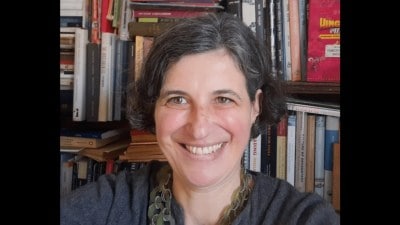Karnataka accepts panel recommendation on OBC quota in local polls despite HC reservations
The Justice K Bhaktavatsala commission recommended a 33% quota stating that many communities under the OBC categories A and B are socially and politically backward.
 The reservations were challenged in the high court and on September 30, 2022, the court ruled that the government reserved 33 per cent of seats for Other Backward Classes in the BBMP council on the basis of “imaginary data”. (File Photo)
The reservations were challenged in the high court and on September 30, 2022, the court ruled that the government reserved 33 per cent of seats for Other Backward Classes in the BBMP council on the basis of “imaginary data”. (File Photo) Karnataka’s Congress government has accepted three recommendations of the Justice K Bhaktavatsala commission, which was constituted by the BJP government to look at caste numbers in the state to decide on reservation for Other Backward Classes in urban local body polls.
One of the recommendations was to provide 33 per cent reservations in urban local body polls for OBCs and the previous government accordingly reserved seats for the Bruhat Bengaluru Mahanagara Palike. The reservation was, however, rejected by the Karnataka High Court as being “unscientific”.
“The Justice K Bhaktavatsala Commission report of the Backward Classes Department made recommendations for giving political representation in the light of a Supreme Court order. The commission made recommendations for reservation in panchayat raj and urban local bodies. Out of the five recommendations made by the commission, three have been accepted,” Law Minister H K Patil said after a cabinet meeting on Thursday.
One of the accepted recommendations is to “continue to provide the policy of political reservation of one third, that is 33 per cent, of total seats in the ensuing urban and local body elections in favour of OBCs as per the present classification of OBCs as backward classes—Category A and Category B”, the minister said.
The aggregate of reservation of seats of SC/ST and backward classes shall not exceed 50 per cent of total seats, the cabinet has decided.
“There may be a confusion that if it is 33 per cent for OBC, together with SC/ST (18 per cent) it will go over 50 per cent. In practice and law, it is said that whatever is the SC/ST portion—in proportion to the population—then that minus 50 per cent will be the backward classes quota,” the minister said.
The other recommendations accepted by the cabinet are “to consider providing reservation of office of mayor and deputy mayor in BBMP in favour of persons of backward classes” and “to bring all urban and local body elections under the control of DPAR (Department of Personnel and Administrative Reforms)”.
The Justice Bhaktavatsala commission was constituted to adhere to the Supreme Court prescribed “triple test” norms to reserve constituencies for Other Backward Classes. The commission submitted a report on the quota requirement on July 21, 2002, a day before a Supreme Court hearing on a nearly two-year delay in conducting the Bruhat Bengaluru Mahanagara Palike polls in Bengaluru and on the issue of OBC reservation.
The government fixed the OBC quota for the Bengaluru civic body at 33 per cent of the 243 seats on the basis of the report provided by the commission headed by Justice Bhaktavatsala, formerly of Karnataka High Court, to then chief minister Basavaraj Bommai.
The reservations were challenged in the high court and on September 30, 2022, the court ruled that the government reserved 33 per cent of seats for Other Backward Classes in the BBMP council on the basis of “imaginary data”. It quashed an August 16, 2022, notification for the BBMP quota matrix.
The commission referred to data for urban and local body elections held in 1996, 2001, 2010 and 2015 to conclude that a large number of castes and communities “who come under the Category- A and B of Other Backward Classes are still socially and politically backward” and that “providing reservation of 1/3 rd (33%)” is necessary.
The commission also concluded that 44.40 per cent of the total population of the state (including minorities) belonged to OBCs but this was ruled as being “not based on any empirical data” by the high court last year.
“The Commission was required to conduct a rigorous investigation into the pattern of backwardness that acts as a barrier to political participation, which is indeed quite different from patterns of disadvantages in the matter of access to education or employment. Such an exercise is not forthcoming from the report submitted by the Commission of Enquiry, nor any material is placed by the State Government that the Commission of Enquiry had conducted such an enquiry or the report was based on the empirical data furnished by the State Government,” the court said on September 30, 2022.
“The Commission was required to find out which of the communities are backward in the local bodies across the State of Karnataka on the basis of empirical data and thereafter opine that providing reservation of 33% of total seats in favour of OBCs including the minorities in the local bodies is justifiable,” the court said. “The conclusion that large numbers of castes and communities come under the category of A and B of other backward classes and that they are still socially and politically backward is alleged to be based on the data pertaining to urban and local body elections held in the State of Karnataka in the year 1996, 2001, 2010 and 2015.”
“The conclusion that 44% of the state population consists of backward classes including minorities is imaginary and the same is contrary to the triple test enumerated in the case of K Krishnamurthy (by the Supreme Court),” the court further said.
The commission, however, recommended only 33 per cent OBC reservation in urban and local body polls. It also recommended the government “consider providing reservation of office of the Mayor and the Deputy Mayor in BBMP in favour of persons belonging to Other Backward Classes”.







